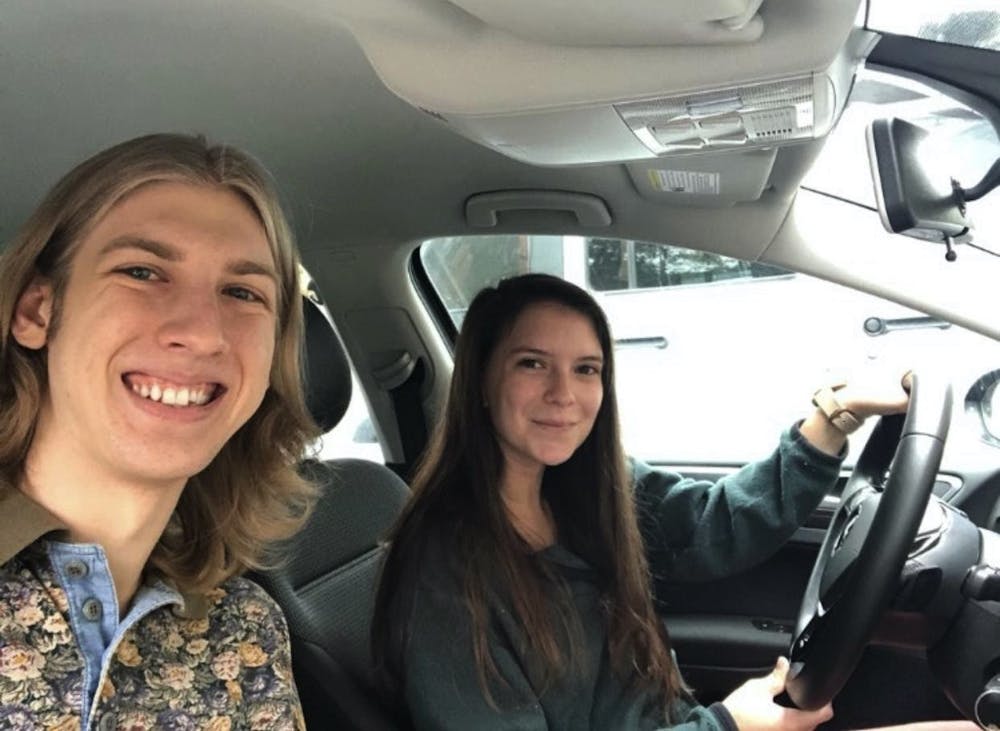Months before President-elect Joe Biden’s Jan. 20 inauguration, two American University students drove 30 hours from D.C. to Texas to cast their votes after they didn’t receive their requested absentee ballots.
Meredith Reilly, a junior in the School of Public Affairs, and Zachary Houdek, a junior in the School of International Service, previously voted absentee in the 2018 midterm election. However, despite requesting absentee ballots plenty of time before this election’s deadline, neither of their ballots were delivered this time, they said.
“Weeks went by and we never heard anything, even though our friends had gotten theirs,” Reilly said. “We saw our requests didn’t go through, and even after trying again still nothing. So, 10 days before the election, we decided to drive down and vote in person.”
Reilly and Houdek come from a state where it’s harder to vote than in others, according to researchers. An October study conducted by researchers at Northern Illinois University, Jacksonville University and Wuhan University found that Texas has the strictest voting rules of any state in the U.S.
Reilly said this came as a shock after their previously smooth absentee voting experiences. After the election, Houdek said he received a letter from his county informing him that his ballot request was received “too late.” Austin County requires the request to be received “no later than the close of business on the 11th day before Election Day,” according to Texas’ absentee voting guidelines. Houdek said that he mailed his ballot around the start of September.
Reilly, on the other hand, didn't received any communication from her county as of November, she said. A couple of other organizations, such as Reilly’s local Fox News station and the Texas Tribune, reached out on their behalf to both county clerks, but also did not receive a response.
“Our feelings about this kinda went back and forth,” Reilly said. “Sometimes we were frustrated that it even had to happen. Other times we felt lucky that we were able to make the drive; there are a lot of people that, if this happened to them, just wouldn’t get to vote at all”.
The pair felt that these issues stopping many others from voting in the U.S. could be described similarly to a “modern-day poll tax,” Houdek said.
“I think that the entire system of voting in the U.S. needs reform,” Reilly said. “There is a lot of voter suppression that was pretty intentional in Texas. There are so many barriers to voting in the United States that should be eliminated. Things like voter ID laws and voter registration laws are all unnecessary and only in place to keep people from voting.”
As for future elections, Houdek said that this situation may affect how he votes. For him, it would mean submitting his ballot request as soon as possible and following up on it throughout the process. He also explained how simple voting in-person was; within 15 minutes he safely cast his ballot and left his respective polling station.
Reilly said her next voting method would depend upon if voting efficiency reforms are made.
“I think we would probably be a little more on top of things early on,” she said. “I would try to figure out the status of my ballot months in advance instead of waiting and trusting the system. I don’t think we will trust any of that anymore.”





